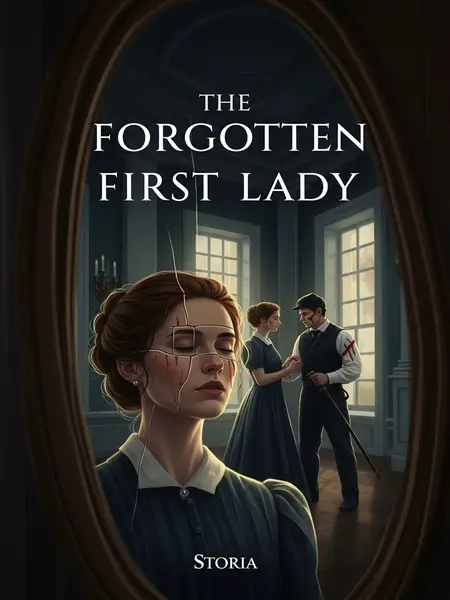Chapter 3: Shadows and Kindness
The next day, when Miles returned, his neck would be covered in red marks, and his limp was worse than ever.
He’d move slowly, wincing with every step. The bruises on his neck were fresh, angry welts that stood out against his tanned skin. I tried not to stare, but the sight made my stomach twist with guilt. I wondered what had happened behind closed doors, but was too afraid to ask, my own shame prickling under my skin.
I thought to myself, who had he fooled around with this time?
I told myself he must have gotten into trouble, that it was his own fault. It was easier to believe that than to admit the truth—that someone was hurting him because of me. The thought made me inexplicably angry, and I paced the room, my hands clenching and unclenching.
For some reason, I became inexplicably angry and told Miles he was no good all day long.
I snapped at him, finding fault in everything he did. I called him lazy, useless, a burden. He took it all in silence, his eyes dull and lifeless. The other staff watched, smirking, but I felt no satisfaction in their approval. At night, regret would gnaw at me, but I couldn’t bring myself to apologize.
Miles smiled faintly at me and took out a few pastries he had swiped from the kitchen, hidden in his shirt.
He offered them to me, his hands shaking. The pastries—apple turnovers, still warm and fragrant—were wrapped in a napkin. I took them without a word, stuffing them into my mouth to hide my embarrassment. For a moment, the anger melted away, replaced by a strange, aching tenderness.
I devoured the pastries and was no longer angry with Miles.
The sweetness lingered on my tongue, a reminder of his quiet kindness. I watched him clean up the crumbs, his movements slow and careful. For the first time, I wondered what it would be like to be loved by someone like him, and the thought left me unsettled.
Very soon, I realized that Harrison’s affection for me had faded.
He became distant, his touch colder, his smiles forced. The flowers stopped coming, the sweet words dried up. I saw less and less of him, our conversations growing shorter by the day. The house felt emptier, the rooms colder, as if a storm was brewing just beyond the windows. Sometimes he’d leave the room without even saying goodnight, and I’d listen to the echo of his footsteps fading down the hall.
Although I had entered the governor’s mansion, the position of First Lady had always remained vacant.
There was talk in town, whispers that I was just another pretty face, a placeholder until someone better came along. The pressure of local gossip weighed heavy—people expected the governor’s wife to chair charity events, host garden parties, be the face of Maple Heights. The staff avoided my gaze, their respect fading with each passing day. I felt invisible, a ghost haunting the halls of my own home.
Harrison did not favor me alone.
He entertained other women, laughing and flirting in the parlor while I sat alone in my room. The sound of their laughter drifted up the stairs, a cruel reminder of my own loneliness. I tried to ignore it, but the ache in my chest grew with each passing day.
A few days ago, he took the senator’s daughter as a consort and made her his Noble Consort.
Her name was Savannah, and she swept into the mansion like a hurricane—young, beautiful, and ruthless. The staff fawned over her, eager to curry favor with the new favorite. I watched from the shadows, my place in the house shrinking with each passing day.
The mansion became even colder and quieter.
The laughter and music faded, replaced by a heavy silence. The staff moved quietly, their eyes downcast, their voices hushed. Even the gardens seemed to wilt, the flowers drooping in the summer heat. I wandered the halls, searching for something to fill the emptiness inside me, the ticking of the grandfather clock and the chirr of crickets my only companions.
Only Miles’s presence by my side remained.
He was a constant, a silent shadow who never left my side. He brought me tea, tended the fire, and listened to my rambling stories without complaint. In his quiet way, he became the anchor that kept me from drifting away, the comfort of a favorite old quilt on a cold night.
Miles could not speak and was hard of hearing.
It made communication difficult—he missed half of what I said, and I had to repeat myself constantly. Sometimes I’d write notes, but his reading was slow and labored. Still, he tried his best, always eager to please, his eyes searching mine for approval.
It was difficult to converse with him.
I’d ask him questions, but he’d just shake his head or look away. The silence between us grew heavy, filled with things left unsaid. I found myself wishing he could speak, just once, to tell me what he was thinking, to break the oppressive quiet.
“You can at least write, can’t you?”
Miles slowly shook his head.
I was bored and told him I would teach him.
I grabbed a pen and a sheet of paper, determined to break through the wall between us. “It’s easy,” I said, drawing out the letters. “Just watch.” As I wrote, I remembered learning to write as a child at the kitchen table, my mother’s hand guiding mine, the scent of cinnamon rolls in the air. He watched, his eyes wide and wary, as if expecting to be punished for getting it wrong.
Unexpectedly, Miles stepped back, clearly unwilling.
He shook his head, backing away until his shoulders hit the wall. His hands trembled, his face pale, the contrast between his cold skin and my own warm, trembling hand making the air between us feel electric. I felt a surge of frustration—why was he so afraid of me?
I refused to accept this.
I seized his hand and forced him to hold the pen, writing the crooked letters for ‘Miles.’
His hand was cold and clammy in mine, his grip weak. My own hand was warm, almost feverish with determination. I guided his fingers across the page, forming the letters one by one. The result was messy, but legible. I smiled, proud of our accomplishment, but he just stared at the paper, his eyes filling with tears, his body trembling.
Miles was so thin and frail that he could not break free from my grasp.
He didn’t even try to fight me, just let me move his hand as I pleased. I felt a pang of guilt, realizing how powerless he truly was. For a moment, I wanted to let him go, to give him back his dignity—but the urge to teach him was stronger, a stubbornness I couldn’t explain.
I rather enjoyed his frightened look when forced.
There was something intoxicating about the power I held over him. I told myself it was for his own good, but deep down I knew I was punishing him for things beyond his control. The realization made me uneasy, a cold sweat prickling at my neck, but I pushed it aside, focusing on the task at hand.
“Next, I’ll teach you to write the word ‘servant.’”
Unexpectedly, a cold male voice sounded from the doorway.
“Charlotte, you’re in high spirits.”
“Ah—”
Startled, I dropped the pen.
Harrison had silently entered my room.
I smiled awkwardly. “The days are peaceful.”
Turning to look at Miles, the useless one was already kneeling on the ground, head bowed.
“Let me see what you wrote,” Harrison said, smiling lightly as he approached.
His foot, whether intentionally or not, stepped on Miles’s hand.
But the words on the paper pleased him.
His long, clean fingers tapped my forehead. “You’ve gotten rusty—your writing is so ugly.”
I saw Miles’s fingertips redden with blood, so I bit my lip and spoke.
“Harrison, you’re stepping on him.”
“Oh.” Harrison raised his eyebrows and slowly lifted his foot.
“The kitchen’s short on help today. Miles, you’ll go?”
Miles nodded slightly.
I did not know why his face suddenly turned white as a sheet.
I asked Harrison, “Will you not stay with me tonight either?”
He patted my hand lightly. “When this busy period is over.”
He raised the corner of his eye. “Come on, Miles. I’ll help Charlotte out tonight.”
“Tonight, I’ll teach you properly how to write.”
I sat quietly for a while and thought, Harrison must be angry.













